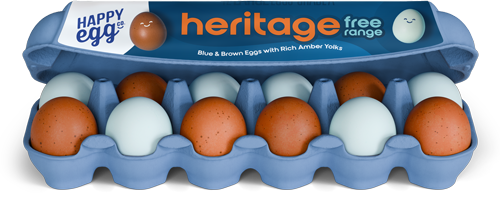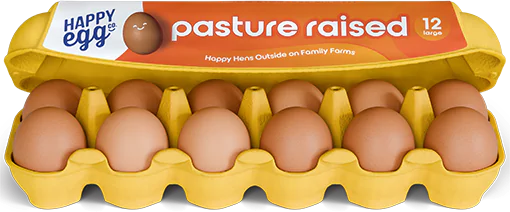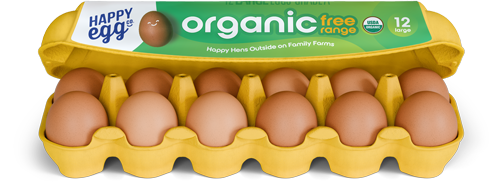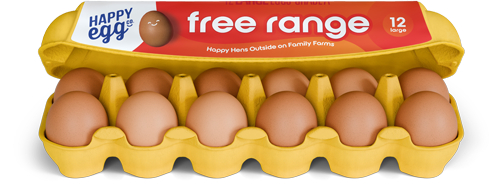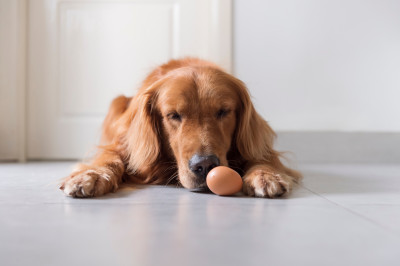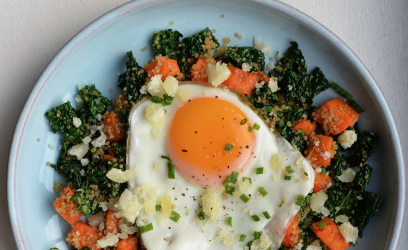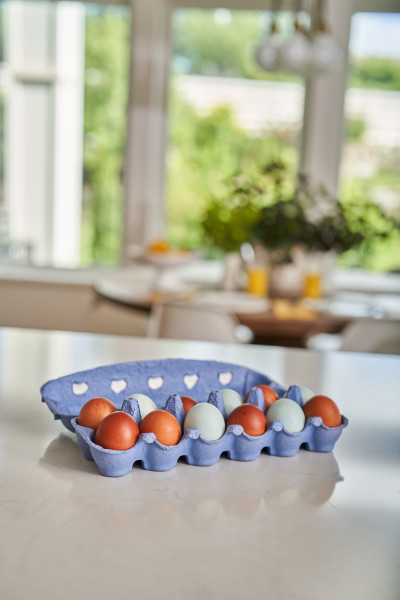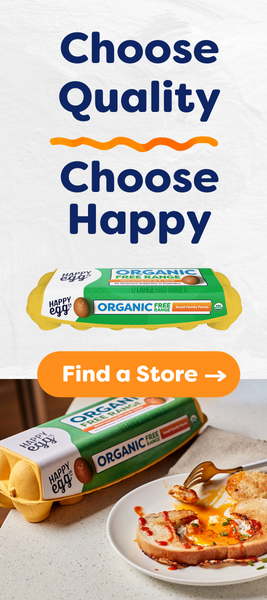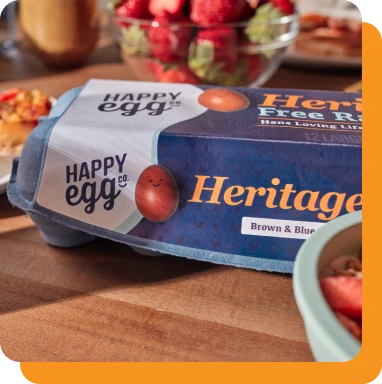If you’re an avid baker, you may have noticed that there is one ingredient that pops up again and again: eggs! Recipes for muffins, cookies, cakes and pastries all call for eggs, but why?
What do eggs do in baking?
When added to a recipe, eggs take on a few roles. They may be used to add structure, flavor, texture or act as a leavening agent. Interestingly, depending on whether the recipe calls for whole eggs, egg whites and egg yolks also affect what an egg does during baking.
Structure
Whole eggs, egg yolks and egg whites are all used to add structure to batters. The yolk’s elevated fat content helps it bind fats and liquids together through what’s called an emulsion. Emulsion is just a fancy word for two liquids that don't usually blend together on their own, like oil and water.
How does this apply to baking? Well, when your cake batter calls for water and vegetable oil, an egg or two is added to keep those two ingredients together.
Eggs are also a secret ingredient in gluten-free baked goods because they are great at replacing gluten as the binder that keeps the final product, like a cookie, from being too crumbly.
What about egg whites?
Unlike egg yolks, egg whites are pure protein. If you’ve ever made a meringue, you’ve seen first hand how whipping a few egg whites together creates a beautiful sky-high topping. It’s the quick whisking motion that adds tiny air pockets to the eggs and causes it to rise into a sturdy foam. When an acidic like lemon juice is incorporated, foamy egg whites become even more stable.
Eggs as a leavening agent
Leavening agents are used to help batters rise. We usually attribute this reaction to yeasts and baking soda, but egg whites are also perfect for this role. Just as in the meringue example, it’s the air trapped within the whipped egg whites that helps give an angel food cake its tall buoyant shape and structure.
A similar phenomenon happens with whole eggs when they are added to baking recipes. Because eggs are so moisture rich, pockets of steam form as the body of the egg heats and expands. This increased volume - from the steam - means its up-up-and-away for items like cream puff pastries!
Richness & Flavor
We can’t talk about eggs without talking about the way they make flavorful bakery items even better!
Egg yolks are kind of like salt in that they enhance the richness of flavor in dishes they’re added to. How does this happen? It all comes down to the fat content of the yolk, and fat’s ability to boost flavor when it's added to a recipe.
An egg yolk’s other flavor-delivering secret is its lipids. Part of the way lipids contribute to flavor is by binding to a person’s palate and creating a mouthfeel, which scientists describe as a positive sensory impression - pretty cool!


